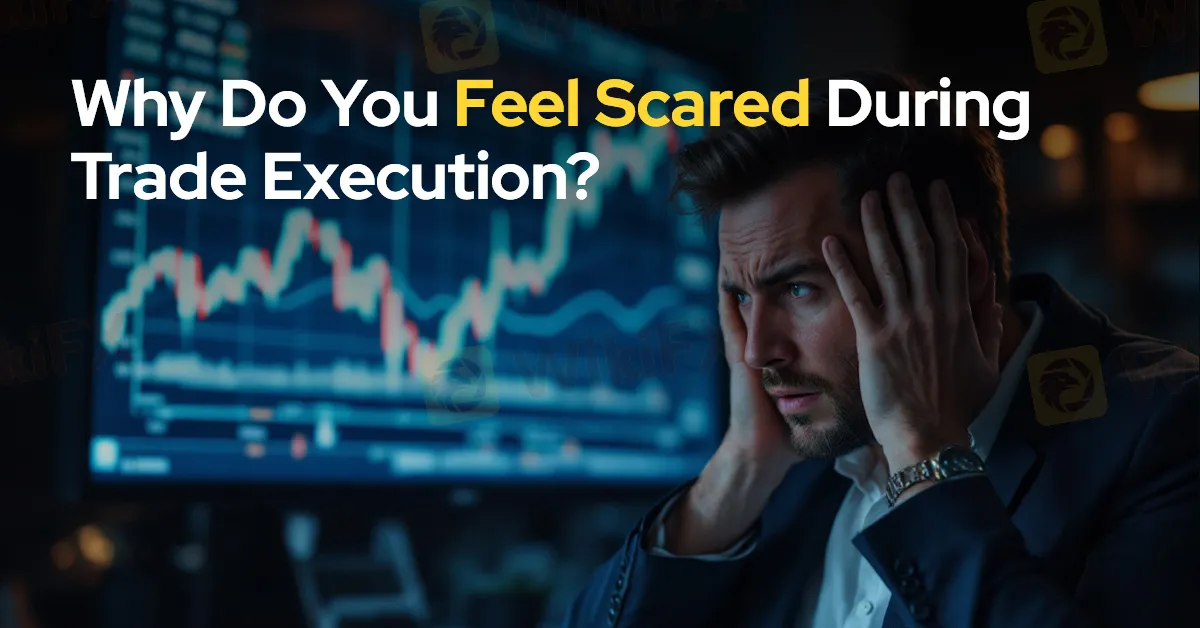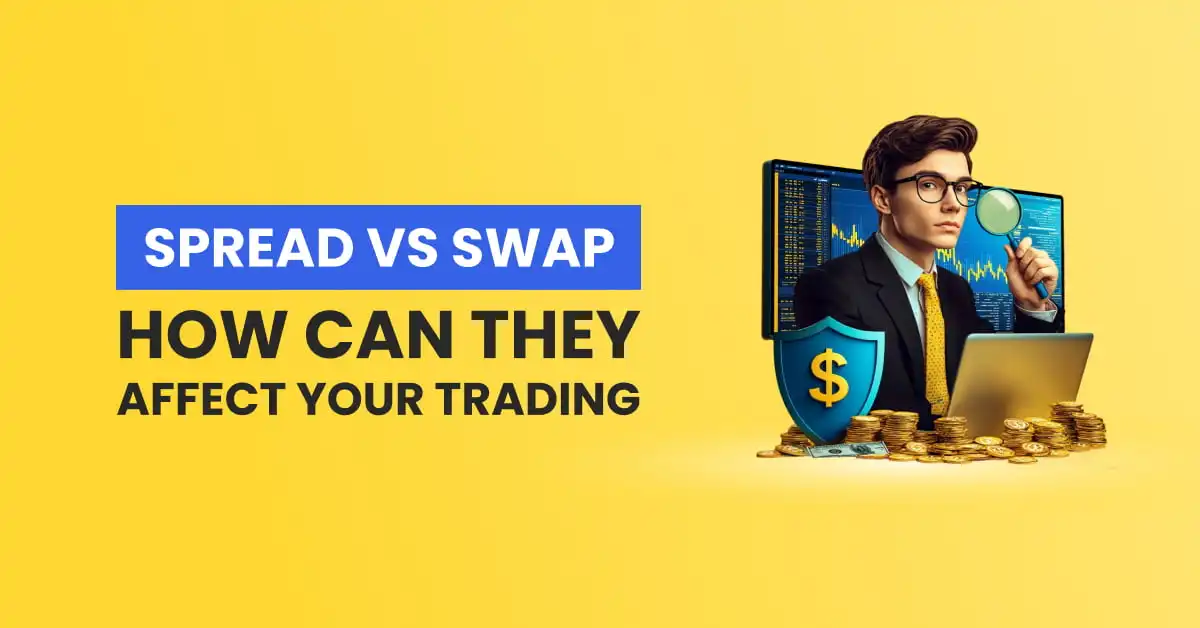简体中文
繁體中文
English
Pусский
日本語
ภาษาไทย
Tiếng Việt
Bahasa Indonesia
Español
हिन्दी
Filippiiniläinen
Français
Deutsch
Português
Türkçe
한국어
العربية
Why Do You Feel Scared During Trade Execution?
Abstract:Trade execution is a pivotal moment for traders. It is when analysis turns into action, and potential profits or losses become reality. However, for many traders, this moment is accompanied by fear. Why does this happen, and how can you address it?

Trade execution is a pivotal moment for traders. It is when analysis turns into action, and potential profits or losses become reality. However, for many traders, this moment is accompanied by fear. Why does this happen, and how can you address it? Understanding the psychological, emotional, and risk management aspects of trading is essential to mastering this fear and making more confident decisions in the financial markets.

At its core, fear during trade execution stems from uncertainty. The market is unpredictable, and no analysis can guarantee outcomes. This uncertainty triggers a natural response rooted in our survival instincts: the fear of loss. For traders, this can manifest as hesitation, second-guessing, or even paralysis when its time to click that “Buy” or “Sell” button.
Additionally, past experiences play a role. Traders who have faced significant losses may develop a psychological barrier to executing trades, fearing a repeat of their mistakes. This is compounded by the pressure of potential financial loss, which can feel overwhelming, especially for those new to trading or operating with large positions relative to their account size.
Trading is an emotional endeavour. The fear of being wrong can evoke anxiety, while the hope of being right can create excitement. Unfortunately, these emotions can cloud judgement, leading traders to deviate from their strategies. Fear during execution is often linked to the potential regret of making a losing trade, which can weigh heavily on a traders mind.
For some, this fear can escalate into a cycle of avoidance. Traders may skip opportunities altogether, unable to face the emotional turmoil of executing trades. Conversely, others may overtrade, attempting to “win back” what they fear losing—a dangerous practice that often leads to greater losses.
One of the most effective ways to combat fear during trade execution is robust risk management. Fear often arises from the perceived consequences of a trade going wrong. By implementing strict risk management practices, such as setting stop-loss orders, using appropriate position sizing, and maintaining a healthy risk-to-reward ratio, traders can limit potential losses and reduce the emotional weight of each trade.
A clearly defined trading plan also helps mitigate fear. When you know exactly why you‘re entering a trade, where you’ll exit, and how much you‘re willing to risk, there’s less room for uncertainty. This structure provides a sense of control, which can alleviate the anxiety of execution.
Fear during trade execution is not inherently bad as it is a sign that you care about your financial decisions. However, it is crucial to manage this fear so it doesnt hinder your progress. Focus on continuous learning, practise discipline, and remember that no trader wins all the time.
Trading is as much a psychological battle as it is a technical one. By understanding the roots of your fear and taking steps to address it, you can transform this emotion from a hindrance into a tool for cautious and thoughtful decision-making. Above all, do not rush your trading journey. Mastery takes time, and patience is the foundation of long-term success.

Disclaimer:
The views in this article only represent the author's personal views, and do not constitute investment advice on this platform. This platform does not guarantee the accuracy, completeness and timeliness of the information in the article, and will not be liable for any loss caused by the use of or reliance on the information in the article.
Read more

Spread vs Swap: How Can They Affect Your Trading
In forex trading, success is not only about predicting price movements correctly. It also depends on understanding the costs involved. Two of the most important charges that every trader should factor in are the spread and the swap. These are key components of the overall forex trading fee charged by brokers, and both can have a direct impact on the outcome of a trade.

Exploring the Benefits of Forex Investments
The Indian forex market is $60 billion strong, courtesy of the belief that it yields significant returns for investors over time. The visually impressive technical analytic tools give investors an insight into the market behavior. Assessing it through varying currency price movements helps them take an informed call on position and account sizes. Explore this article to know the benefits of forex investments in greater detail.

FSMA Warns That Some Firms Operate as Pyramid Schemes
The FSMA has sounded the alarm on a “new wave of fraudulent trading platforms” that rely on pyramid schemes to sustain payouts. According to regulator observations, these schemes allow small withdrawals at first in order to build trust, then use excuses to block larger withdrawal attempts. Eventually, when recruitment of new participants falters, the platform vanishes with all funds, leaving victims empty‑handed.

FortuixAgent Review: What You Should Know?
FortuixAgent is an automated trading platform designed to execute buy and sell orders by leveraging live market data and artificial intelligence. The platform supports multiple asset classes, including forex majors, crypto pairs, and precious metals, allowing diversification from a single dashboard. Recently, FortuixAgent has played a role in many regional markets, including South Africa, South Asia, etc. However, is it reliable?
WikiFX Broker
Latest News
Top Wall Street analysts recommend these dividend stocks for regular income
Stock futures rise as U.S.-EU trade deal kicks off a hectic week for markets: Live updates
Thailand-Cambodia War Pressures Thai Baht in Forex Market
Treasury yields tick lower as investors look ahead to Fed's interest rate decision
European stocks set to rise after the U.S. and EU strike trade agreement
Samsung Electronics signs $16.5 billion chip-supply contract; shares rise
Does XS.com Hold Leading Forex Regulatory Licenses?
Elon Musk confirms Tesla has signed a $16.5 billion chip contract with Samsung Electronics
Chile Bumps Up Copper Price Forecast and Flags Lagging Collahuasi Output
A breakthrough and a burden? What the U.S.-EU trade deal means for the auto sector
Currency Calculator


